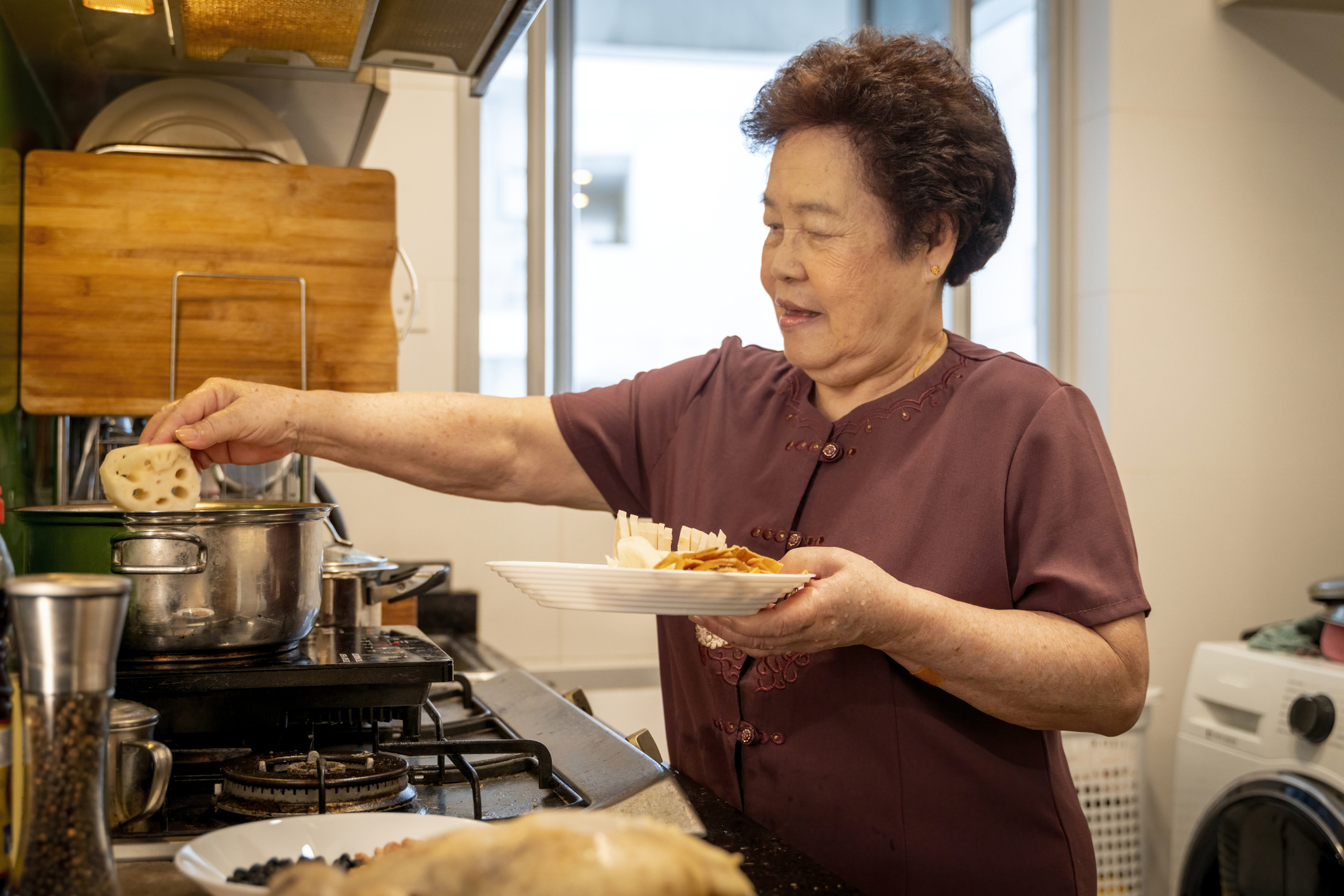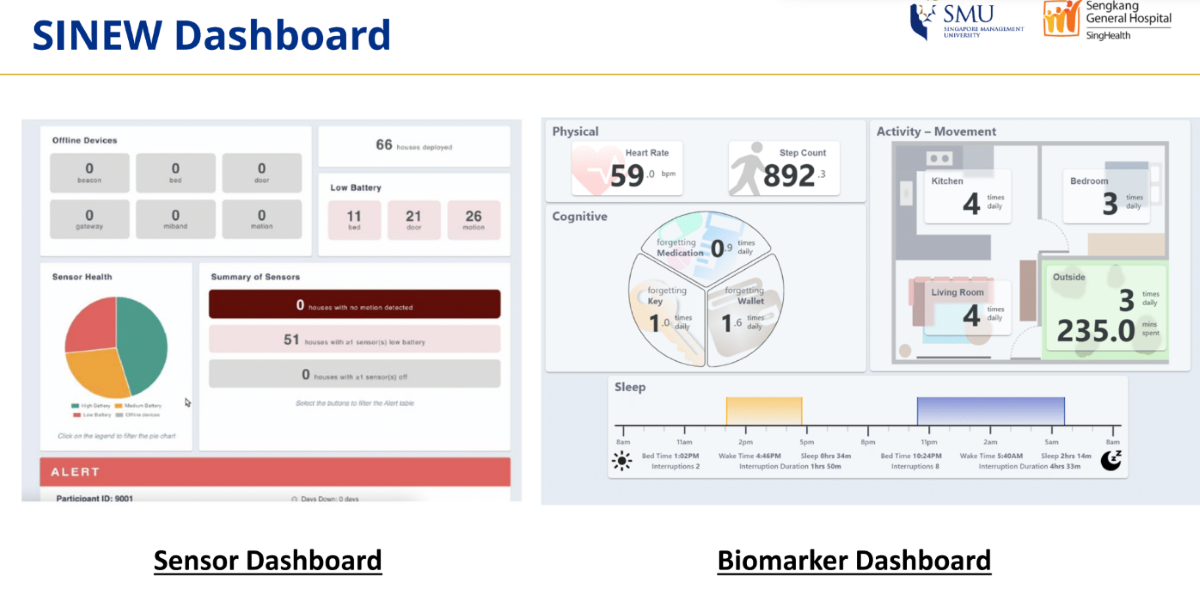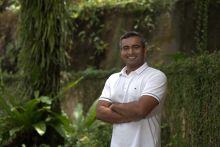SMU and Sengkang General Hospital partner to support ageing-in-place

The second phase of a pioneering study, part of a collaborative effort between Singapore Management University (SMU) and Sengkang General Hospital (SKH) has shown improved accuracy in its results, paving the way for seniors who live alone to age safely and independently.
The project, titled Sensors In-home for Elder Wellbeing (SINEW), uses discreet, smart technology to detect early signs of cognitive decline in older adults who live alone. It is helmed by Associate Professor Iris Rawtaer, Head and Senior Consultant, Department of Psychiatry and Director of Research at SKH, and Professor Tan Ah Hwee, Professor of Computer Science at SMU.
Funded by Singapore’s National Research Foundation under the Industry Alignment Fund – Pre-Positioning Programme (IAF-PP), SINEW marks a shift in how society thinks about elder care — away from crisis response and toward early, non-intrusive monitoring. By combining behavioural science, artificial intelligence, and human-centred design, the project supports one of Singapore’s fastest-growing demographics: seniors who live alone.
Unobtrusive tracking of patterns
The first of its kind in Asia, SINEW adopts a non-intrusive approach to monitor daily routines using eight ambient sensors placed throughout participants’ homes— in bedrooms, in living rooms and kitchens, on doors, in medicine cabinets, and on keychains. These are paired with wearable fitness trackers that capture physical activity and heart rate data.
As real-world sensor data captured from the real world can be incomplete and noisy, the SINEW research team has developed predictive models using various machine learning techniques to handle this challenge.
In the most recent pilot, 63 seniors aged 65 to 85 took part in a trial. The system monitored subtle behavioural cues—like sleep interruptions, physical inactivity, missed medications, and repeated forgetting of essentials like keys or wallets.
Disruptions in these daily routines may signal the early stages of mild cognitive impairment (MCI), a potential precursor to dementia.
In cases where irregularities such as a lack of movement for eight or more hours are detected, caregivers are alerted, which helps to create a support system that doesn’t compromise an individual’s autonomy or sense of privacy.

A hopeful prototype for ageing in place
The project’s current phase introduced a robust Machine Learning-based AI model trained on participants’ sensor data, designed to handle noisy and missing sensor data that is typical of real-life environments.
The result was a noise-resilient predictive model that was able to achieve over 90 per cent accuracy in detecting MCI – validated against clinical assessments performed by the clinical research team. This is more than a 20 per cent improvement from the previous study phase that was carried out over in 2020.
Prof Tan notes that the AI not only predicts risks but also explains them, allowing caregivers to understand its reasoning. For instance, it identifies risk factors such as reduced movement at home or missed medication in people with mild cognitive impairment, enabling timely and targeted support.
SINEW offers more than just early detection—it promises personalised, respectful, non-intrusive support for seniors who want to live independently but safely. By combining the precision of AI with the ethics of human-centred care, the project presents a scalable, compassionate model for ageing in place.


